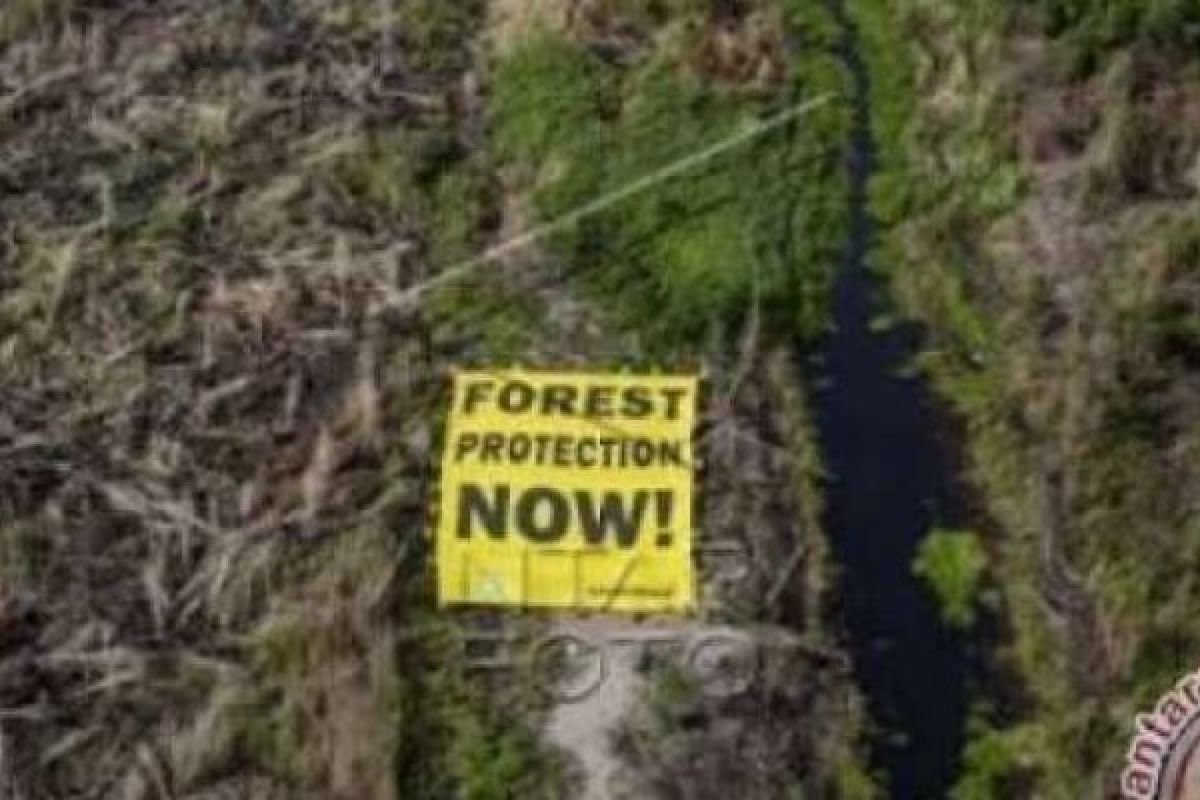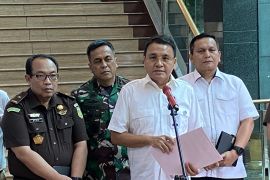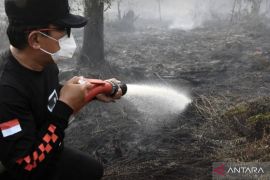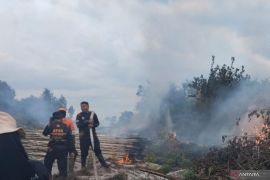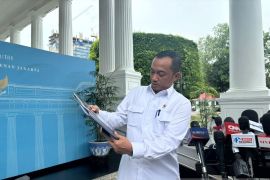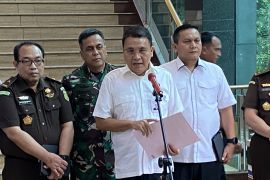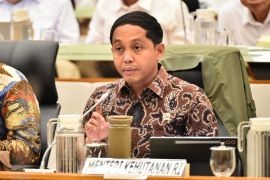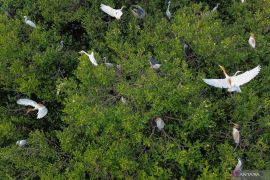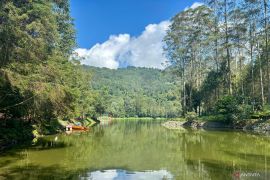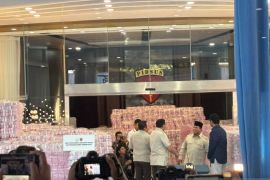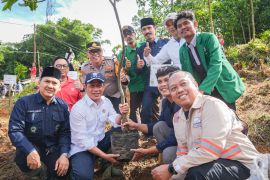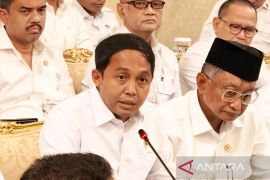This is since the government has yet to issue any policies or regulations to be implemented to save 66 to 67 million hectares (ha) of Indonesia's natural forests. Forests play an indispensable role in producing oxygen while making Indonesia the lungs of the world.
Regulations relating to the moratorium were first issued by President Susilo Bambang Yudhoyono (SBY) in 2011 through Inpres No. 10 of 2011 on the postponement of new permits for opening primary forests and peatlands.
Since the issuance of the Inpres, valid for a two-year period, until now, the government has conducted four official extensions. Indonesia had at least 64 million ha of forest areas when the Inpres was first issued.
With passage of time, the size of forests in the country has become a cause of major concern as was apparent from the shrinking of forest areas in various provinces that are used for various purposes, including as palm oil plantation land.
In fact, the government has issued an Inpres concerning the moratorium on primary forest and peatland. However, the question that next arises is why is the size of Indonesia's forest area shrinking despite the issuance of the Inpres.
Of course, this is the key question to be answered by the government, especially the Ministry of Environment and Forestry (KLHK), which is commanded by Environment and Forestry Minister Siti Nurbaya Bakar.
Based on data compiled by the Indonesian Forum for the Environment (Walhi), some 18 million ha of permits have been issued by the government since the issuance of the first Inpres by President SBY until 2019, despite a moratorium on primary forests and peatlands being in place.
All parties certainly question the government's commitment in saving Indonesia's forests. It also questioned whether the efforts made were limited to meeting several ministers to sign the Inpres and then ignoring it. Some view that it was inseparable from the exception made by the government.
Related news: Indonesia to Continue The Moratorium of Primary and Peat Forest Conversion
Pajale-Geothermal exception
The government specifically states that it still provides a gap and space for permits to plant rice, corn and soybean (Pajale) and geothermal exploration. This is an exception, as it is viewed as a national strategic project.
The exception was made since the government considered rice, corn and soybean cultivation and geothermal exploration to be conducted in the nation's interest. In fact, until now, the Ministry of Environment and Forestry (KLHK) claimed to still provide new permits for geothermal exploration.
This statement was made by Director General of Climate Change Control of the Ministry of Environment and Forestry Ruandha Agung Sugardiman with reference to the Inpres concerning the moratorium on primary forest and peatland.
"We do not close all possibilities, but we still provide exceptions if it is needed for national development," he stated.
He claims that based on the Inpres, updated every two years, and maps reviewed per six months, the area of 66 million ha of forest in the country has stabilized.
The moratorium on primary forest and peatland is yet being discussed between relevant ministries and the Cabinet Secretariat and State Secretariat.
Greater clarity sought in the exclusion article
Article on exceptions to the moratorium on primary forest and peatland issued by the government has drawn varied responses from experts and Bogor Agricultural Institute (IPB) Professor Bambang Hero.
The professor highlighted the need for the government to outline clear indicators and criteria on any exceptions to the moratorium on primary forests and peatlands that will be made permanent to avert any friction in interest in future.
"This exception must have clear indicators and not result in multiple interpretations and must be firm," he emphasized.
He explained that if the criteria or indicators issued by the government still resulted in multiple interpretations, a loophole will still exist for certain parties to circumvent the moratorium on primary and peat forests.
Hence, stakeholders are urged to make proper arrangements, so as not to trigger a polemic in future.
Citing the example of PT HIP in Buol, Central Sulawesi, Professor Bambang assessed the lack of synchronization of communication between the central government and the regions, thereby resulting in new problems. In fact, the problem can be overcome if the government is clear and open in its approach to all.
A more assertive statement was made by Zenzi Suhadi, head of the National Executive Advocacy Department of Walhi (Friends of the Earth Indonesia), who called on the government to revoke the exclusion article to protect forest areas in Indonesia.
"It should be revoked or eliminated because this is what binds KLHK and ESDM to continue issuing permit status," he pointed out.
The government is yet opening the gap as an exclusion article to improve the licensing status, so the spirit or aspirations of the moratorium on primary forests and peatlands had yet to be maximized.
In addition, the article on exception of rice, corn and soybean is recommended to be immediately revoked or eliminated.
Related news: President bans permits for peatland cultivation
Strict rules
For saving the country's forests, there is no other choice left but to set strict and binding regulations for all parties, both government and corporations. The Inpres that has been issued for the past eight years is viewed as having failed to guarantee the sustainability of Indonesia's forests.
Environmental activists, non-governmental organizations (NGOs), communities, and related parties are yet awaiting the government's next move regarding Moratorium No. 6 of 2017 that expired July 17, 2019. Various inputs were offered in open discussions, one of which called on the government to issue a Perpres to protect primary forests and peatlands.
If it still refers to the Perpres, the government's commitment to the sustainability of primary forests and peatlands is still viewed as being in the gray zone.
Zenzi affirmed that if the government is serious and committed to saving forests in the country, then it is not enough to have the moratorium as a presidential instruction. Instead, it should have a regulatory nature, with a legal validity that not only binds the government but also provides a legal umbrella.
"Hence, it should not only bind the government but also provide a legal umbrella in the law enforcement process," he added.
Walhi further suggested that the government immediately revise the two regulations -- PP 104 of 2005 and Government Regulation No. 6 of 2007 -- that clashed with the essence of the moratorium.
Related news: Walhi calls for tighter control of peat land restoration process
Translator: M Zulfikar, Eliswan Azly
Editor: Sri Haryati
Copyright © ANTARA 2019
